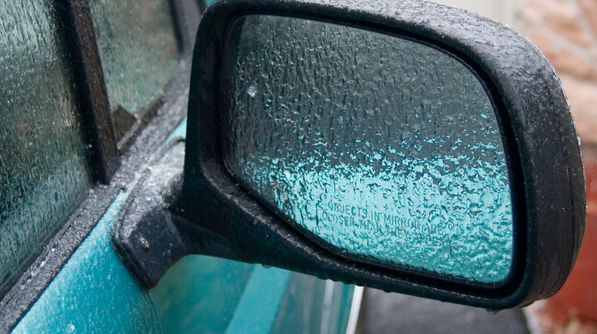One of the major problems most home and car owners face every winter is frozen locks. Having to deal with a frozen lock in the cold is not a pleasant experience. A frozen lock can also lead to bigger issues like door frame contraction or seizing of locks.
While you can turn to professional locksmiths like keys on wheels for help, there are also simple steps you can take to stop and also prevent the situation. Whether it’s your car or front door locks, this article will guide you through how to stop your locks from freezing and what steps you should take to prevent this from happening again.

How to Prevent Your Locks from Freezing
Park Closer to A Building
A good way to prevent your car lock from freezing is by parking it close to a building. The longer you keep your car parked in the open, the more likely it is that moisture will accumulate inside and freeze on the outside of your car. If this happens, it may lead to a bigger problem.
However, if you park your car close to a building, there will be less air circulation around it, which means that there’s less chance of moisture accumulating inside and freezing on the outside. Therefore, it’s more advisable to park your car closer to a building when the temperature drops. Find out the homebuyer’s guide to asbestos.
Oil Your Locks
Oil does not only help to prevent rust, but it can also help keep the metal parts of the lock warm, which means they won’t freeze.
Ensure you oil your locks at least once a year to help keep the mechanism lubricated and reduce the chances of it freezing up.
Cover The Lock With A Magnet
Another simple trick that can be applied to door locks and car locks is using a strong magnet. Covering the lock with a magnet overnight will prevent it from freezing, essentially by keeping it warm inside.
However, if you keep having problems with the door, then you may have to invite a professional locksmith. It’s always more advisable to oil your locks before winter.
How to Open a Frozen Lock
Dip Your Key in An Alcohol-Based Hand Sanitizer
To open a frozen lock, dip your key in an alcohol-based hand sanitizer before inserting it into the keyhole. The alcohol will help to break down any ice that may have formed on your lock. If you don’t have a hand sanitizer, you can make use of alcohol instead.
Smear Vaseline On Your Key
Vaseline will act as a barrier between the air and your lock, keeping it warm. Its high viscosity (thickness) also acts as a lubricant, which helps keep things moving smoothly. So if you find yourself locked out due to a frozen lock, vaseline can help dethaw the ice and also prevent it from happening again.
Spray the Lock With Lock Or Windshield De-icer
Spraying your locks with a de-icer will help to dethaw the ice. However, ensure you spray directly into the lock to avoid messing with the paint and other materials around the lock. You can use a spraying bottle for better accuracy. Ensure you keep this product where you can easily access it when needed.
Heat The Key
Another way to open a frozen lock is to take the key out of the lock and put it into a bowl of hot water for a while. You can also heat the key with a lighter or a candle. Ensure the key is dry before putting it back in your lock.
Use Graphite Powder
Graphite powder is great for keeping locks from freezing and also for opening a frozen lock. Just add a light coating of powder to the key and slide it gently into the lock. Graphite powder serves as a lubricant and also helps to remove ice.
Hair Dryer
While this method must be used with care, it is an effective way to stop your locks from freezing.
Remember, running an extension cord outdoors in a cold, wet environment is not safe; therefore, you should only use this method if you’ve exhausted other methods.
Enter Through Another Door
In situations where you can’t seem to dethaw the ice, you may have to leave it and enter through another door. This will prevent you from damaging your locks completely and also save you the additional costs of repairing them.
Now that you know what to do in case of a frozen lock and how to prevent your lock from freezing over, you can go ahead and give it a try. However, ensure you invite a professional locksmith in more difficult situations. They are more experienced and know the right thing to do at the right time.



